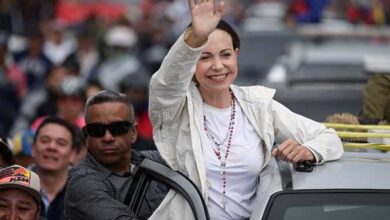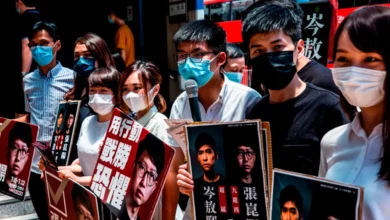Presidential candidate Mohamed ElBaradei has said he is ready to discuss his proposed Bill of Rights with the Muslim Brotherhood and Salafis.
In an interview with renowned Islamic preacher Amr Khaled on Egyptian State TV two days ago, ElBaradei said the proposed document would put an end to divisions between different political groups in Egypt. He said it represents an initiative on the part of the youth of the revolution and other national forces. He pointed out that the bill keeps Article 2 of the Constitution intact.
ElBaradei called on all political powers to have a unified list of candidates in the upcoming parliamentary election, including the Muslim Brotherhood. “We are not at a stage to compete – we need to work together.”
While some members of the now-dissolved National Democratic Party were corrupt, he added, others only worked under its umbrella and should not be ousted from political life. They may engage in politics after repenting, he said.
ElBaradei’s proposed bill of rights states that "the armed forces are the shield of the people and protector of national sovereignty, which defend the independence and integrity of the nation against external threats, and develop systems that ensure the achievement of such goals." It does not give the military a political role.
The military enjoys the respect of broad sectors of Egyptian society, which largely considers it a professional and national institution unpolluted by the financial corruption that has marred its governments.
Democratic, liberal and Islamist groups want a civilian president to rule Egypt for the first time in modern history. In 1952, a military coup led to a series of four military presidents – the latest of which was former president Hosni Mubarak.
ElBaradei's document criminalizes any state institution that threatens democracy. According to Article 6 of the proposed bill, “no text in this document may be interpreted as delegating any state institution, group or individual the right to engage in activity or action aimed at destroying the rights or freedoms set forth herein."
The bill contains six articles concerning the state’s political system and 11 on citizens’ fundamental rights.
Article 1 of the first chapter says the state is a democratic republic based on citizens’ rights and popular sovereignty, exercised through a parliament formed by credible and regular elections conducted through secret ballots, providing equal representation without discrimination.
Article 2 says Islam is the state religion and Arabic the official language, and that the principles of Islamic sharia law are the main source of legislation.




